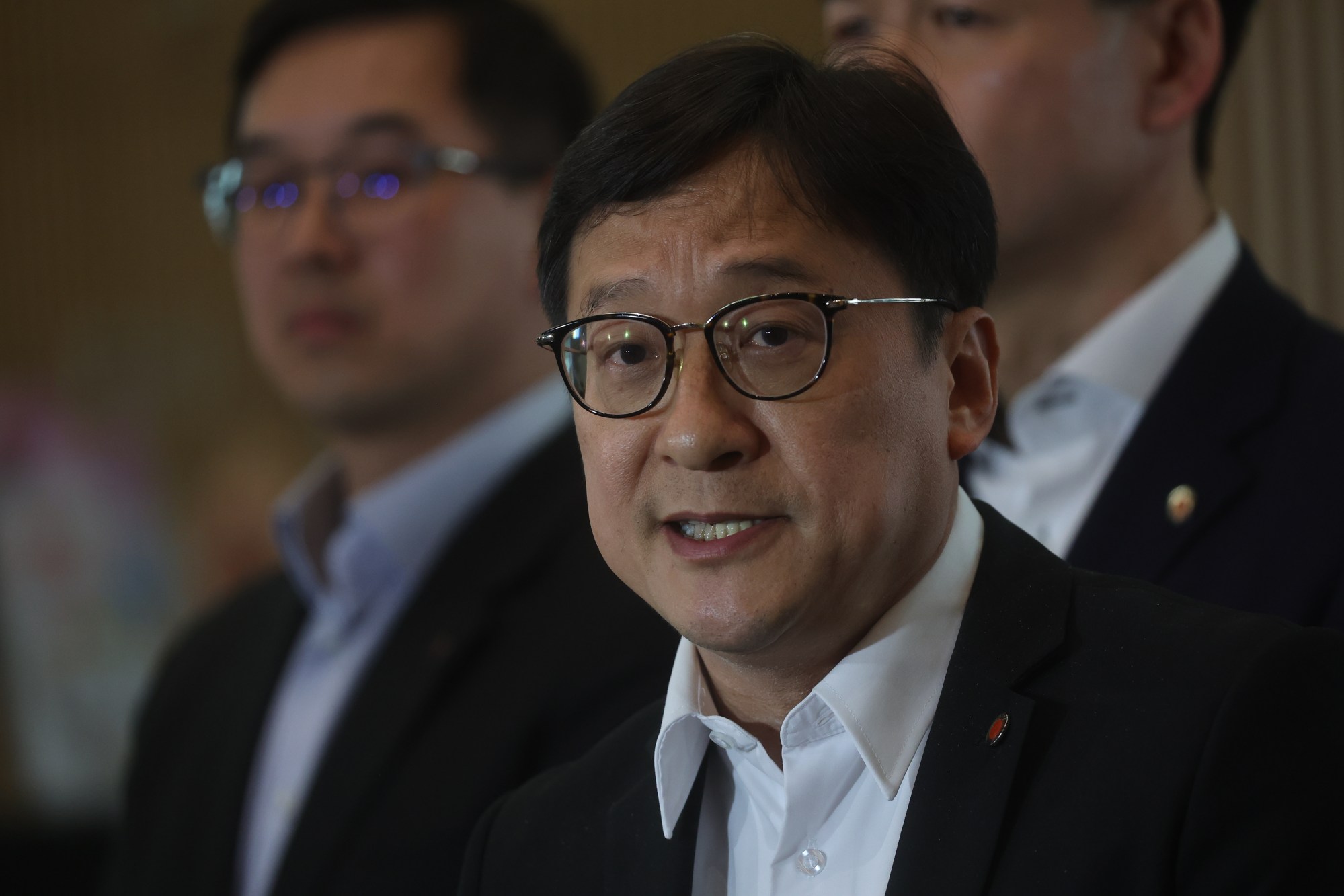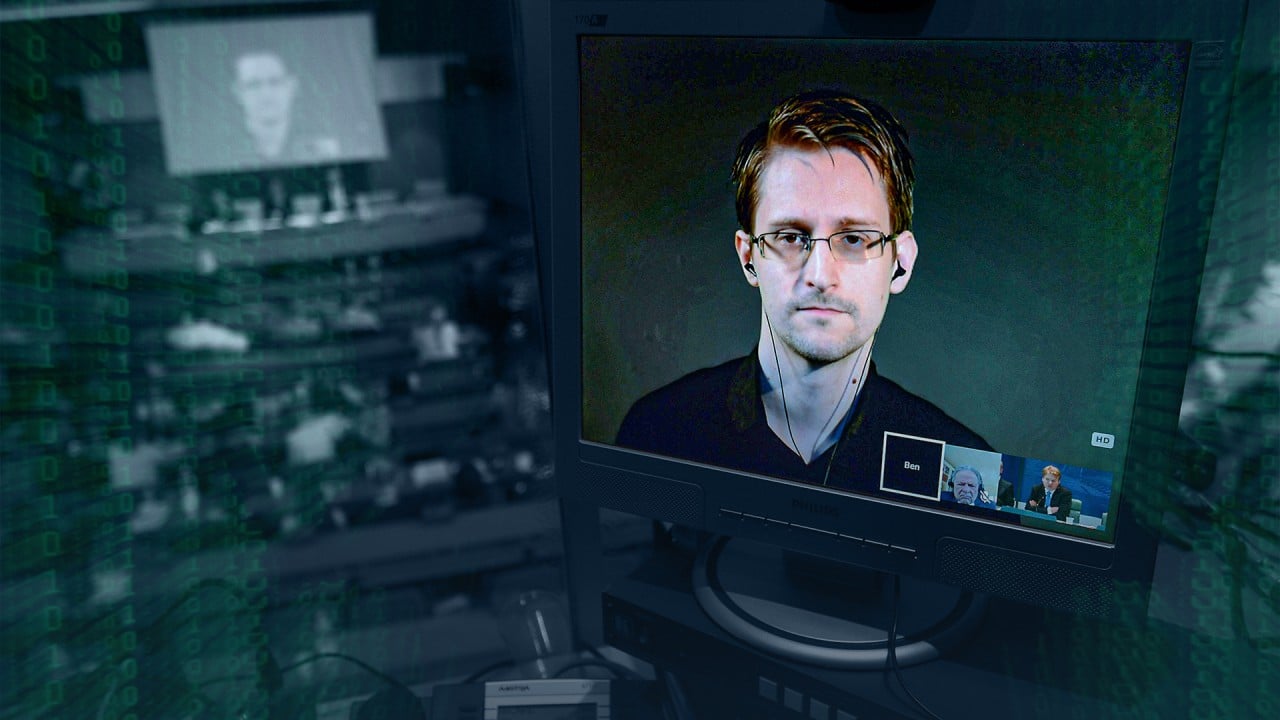
Hong Kong’s Article 23 national security law needs public interest defence for state secrets offence, says city’s biggest lawyer group
- Law Society of Hong Kong tables proposal on Article 23 legislation before 30-day consultation ends Wednesday
- Hong Kong News Executives’ Association calls on government to offer clear provisions, such as the definition of state secrets, when formulating the legislation
Hong Kong’s biggest lawyer group has called on authorities to introduce a public interest defence for those arrested for state secret offences under the city’s proposed domestic national security legislation.
The Law Society of Hong Kong, which represents the city’s solicitors, was joined by a body representing senior media executives on Tuesday in tabling their views on the Article 23 legislation, before a 30-day consultation ends on Wednesday.
“[The defence] merits a thorough policy consideration, and in-depth legal analysis, including the legal burden and/or the evidential burden to be discharged,” society president Chan Chak-ming said in unveiling the group’s 14-page submission, adding that discussions were “very appropriate”.
The Hong Kong News Executives’ Association made a similar suggestion in a statement, while underscoring that a balance should be struck between safeguarding national security and protecting residents’ lawful rights and freedoms, including the freedom of speech and the press, which are protected by the Basic Law, the city’s mini-constitution.

It also called on the government to offer clear provisions, such as the definition of state secrets, when formulating the legislation.
The theft of state secrets and espionage offence is among five new types introduced by authorities in the proposed legislation, alongside treason, insurrection, sabotage and foreign interference.
Secretary for Justice Paul Lam Ting-kwok brushed aside concerns that journalists would easily run afoul of the proposed offence on theft of state secrets.
“For ordinary journalists, there is no special need for them to be worried as the threshold for violating the offence of illegally stealing and revealing state secrets is high,” Lam told members of a Legislative Council subcommittee during a meeting on the legislation on Tuesday.
“It’s hard to imagine that ordinary journalists will have the opportunity to come into contact with [materials that fit] the state secrets’ definition or have the intention that would constitute the crime in the future.”
More ‘smears’ by ‘external forces’ expected over Hong Kong security law: Chris Tang
The Law Society said the government should take reference from Canada’s Security of Information Act if it was “seriously considering” bringing in the defence.
Under the act, the defendant should establish that the public interest in disclosure of the information outweighs the public interest in nondisclosure, and the defendant’s purpose in making the disclosure is to reveal an offence committed by another person in their official duties.
The act also lists the conditions where such a defence can be applied.
For example, the disclosure should happen only after the person has reported their concern and all relevant information to their deputy head or the deputy attorney general of Canada.
The lawyer group also called on the government to clarify certain terms listed in the consultation paper by providing its scope of application and elements that constituted an offence, such as those relating to sedition intention, in a bid to avoid the charges being used to target political speeches or other forms of expression.
Separately, Professor Simon Young Ngai-man, a legal expert at the University of Hong Kong, also submitted his views on the paper in a 22-page document to the government on Tuesday.
Young expressed his concerns over some offences which might create a chilling effect.
He said the proposed offence of “misprision of treason”, which outlaws the failure of a person to report someone who has committed treason to the proper authority within a reasonable time, could turn out to be “a heavy stick” used against otherwise innocent friends and family members of wanted people.
“Ordinary people will not know the precise differences between treason and other national security offences and mistakenly believe there will be a general legal duty to report on others vis-à-vis national security offences,” Young wrote.
“This could have wide implications for society and social cohesion.”
Top Beijing official expected to meet tycoons, professional bodies in Hong Kong
The professor also said he feared the revised espionage offence would put a brake on all engagement and meetings with members of the consulate community, even if for legitimate purposes, such as to clarify the law and legal situation, or disabuse misconception.
In the consultation paper, espionage acts include obtaining, collecting, recording, producing or possessing, or communicating to any other person, any information, document or other article that is, or is intended to be, for a purpose useful to an external force.
Opposition group League of Social Democrats on Tuesday also said the government, while taking references from foreign examples in drafting its own domestic national security law, should not exclude the clauses on rights protection and checks and balances covered in those ordinances.


